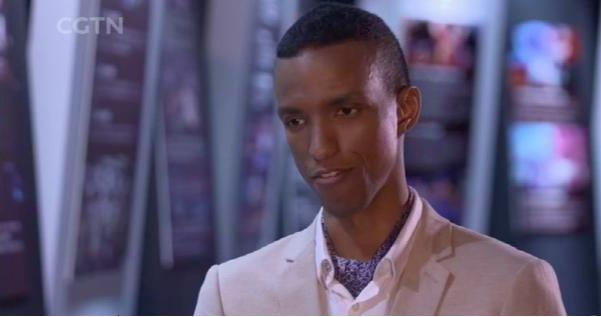
eSports
22:17, 31-Jan-2019
Sponsorships and ownerships: How esports gets its funding
By Laura Schmitt

One hundred and twenty-five million – the equivalent of the entire population of Japan. That's how many people watch eSports competitions online in China each year. No wonder, then, that big business is now showing an interest in competitive gaming, offering sponsorship deals and establishing clubs.
While competitive gaming has had a steady audience in Europe and the Americas for a decade, and professional gamers have been able to make a living off their craft ever since the 1990s, in China the industry was slow to get off the ground. In recent years, though, its growth has been explosive.

Barento “Raz” Mohammed is a commentator for the Chinese LPL, the League of Legends Pro League. /CGTN Photo
Barento “Raz” Mohammed is a commentator for the Chinese LPL, the League of Legends Pro League. /CGTN Photo
One person who has been following developments in the country closely is Barento Mohammed, known in the gamer world as Razleplasm, or just Raz. As a commentator for the LPL – the Chinese league for one of the most popular games on the eSports scene right now, League of Legends – he made the move from Australia to China to be closer to the action and the fans. His time here has taught him a thing or two about the differences between eSports audiences in China and abroad.
"It's always come down to the people," says Raz. "One thing that really struck me was in North America and Europe, the main audience members are predominantly men, and so you don't get to see a lot of the female audience members. When it comes to the LPL you come in and you see the players are seen as idols in a lot of regards, and that there is a lot more female audience members there."
The different gender makeup of the fan base in China brings with it a different approach to the competition. "In North America and in Europe, a lot of people care about the science of the game," says Raz. Although this is true for female Chinese audience members, too, there's something more: "They see players with personality. That's the difference. You get to see people in China value the personality of the players, while when you go towards Europe and North America, personality seems to take a bench. Rather it's the play that matters."
Chinese fans are nothing, if not committed to eSports and their idols. It's not uncommon for fans to spend most of their savings on a trip to watch their team. Even during major competitions, fans send their idols a stream of cakes and gifts, which are carried into the players' lodgings and displayed for all to admire.
Sponsorship goldmine
The rapid rise in interest in eSports in China has not gone unnoticed by potential sponsors. For some, such as Logitech G – the official partner for the international Rift Rivals 2018 competition – getting involved in eSports seems an obvious move. For others, such as L'Oreal Men's Skin Care, which sponsors the LPL, the connection seems a little more tenuous. In a recent development, Nike signed a deal to become the Chinese pro League's official outfitter, providing clothing, accessories and shoes, allegedly to the tune of 144 million U.S. dollars spread over five years.
Sponsorship deals are the biggest income source for eSports, accounting for 40 percent of worldwide revenue and totaling just over 359 million U.S. dollars last year, according to the 2018 Global Esports Market Report by Newzoo.

Sponsorships are the leading eSports revenue source. /CGTN Photo
Sponsorships are the leading eSports revenue source. /CGTN Photo
Some companies have now taken their investment one step further, and moved from sponsorship to establishing an in-house team. One such company is Asus. In December 2017, the computer giant founded Rogue Warriors (RW), providing the players with basic salaries, and installing a management team who train them at a private communal villa.
Le Kedeng is CEO of Team RW. He explains that the latest round of investment comes mostly from IT companies like Asus.
"IT companies started off sponsoring events," he says. "We also developed equipment that's more responsive and more suitable for an eSports setting. That's when we decided to invest in a club."
The company has spent big money on the endeavor, and there are no signs of its investment slowing.
"We've invested 110 million yuan (16 million U.S. dollars) so far," says Le. "This is just the first round. We may have a second phase with more investment to come."
Rediscovering China is a 30-minute feature program offering in-depth reports on the major issues facing China today. It airs on Sundays at 10.30 a.m. BJT (02.30 GMT), with a rebroadcast at 11.30 p.m. (15.30 GMT), as well as on Mondays at 8.30 a.m. (00.30 GMT) and Fridays at 1.30 p.m. (05.30 GMT).

SITEMAP
Copyright © 2018 CGTN. Beijing ICP prepared NO.16065310-3
Copyright © 2018 CGTN. Beijing ICP prepared NO.16065310-3